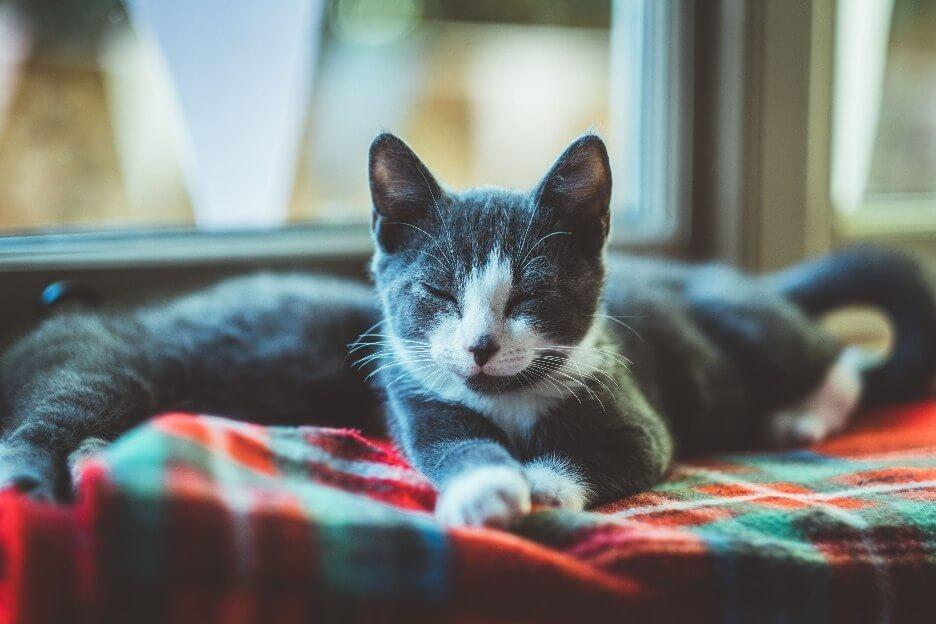The one-word answer to this question is yes, it’s safe for cats to consume cinnamon, although it is not recommended. In the case of cinnamon, it's best to be cautious and avoid feeding it to cats without consulting a veterinarian. Just because it’s safe doesn’t mean we should give cinnamon to them. It’s best to slowly introduce them to small quantities and monitor the amount given to them.
Cinnamon is a herb that is generally safe for humans. The same cannot be said for cats, as large quantities of cinnamon consumption can affect their health. So, can cats eat cinnamon? Continue reading below to learn more.
Do Cats Like Cinnamon?
Now that we are sure that cinnamon is not toxic if given in small quantities, let’s talk about if cats actually like cinnamon. It's important to remember that cats may have different preferences, they are also carnivorous animals and may be more inclined to meat than to the taste and smell of cinnamon. It's possible that cats may not have a particular liking for cinnamon as a flavor.
Is Cinnamon Good for cats?
If given in safe quantities, cinnamon can be good for cats. Cinnamon is a great antioxidant that helps the immune system. It helps their body fight harmful bacteria. Cinnamon may also be beneficial for cats with arthritis and indigestion, as it is anti-inflammatory.
Health Benefits of Cinnamon for cats
While we may be all aware of the health benefits of cinnamon for humans, there is very little evidence that cinnamon may be beneficial to cats. But some believe cinnamon can have the following benefits:
Digestion: Cinnamon can help with digestion
Antimicrobial properties: Cinnamon properties that may help fight off infections.
Antioxidant properties: Cinnamon can help with protecting damage in cells with antioxidants
Anti-Inflammation: Cinnamon has properties that help with an inflamed body
Blood sugar regulation: Cats with diabetes can be benefited with cinnamon as they help regulate blood sugar
How Much Cinnamon is Good for Your Cat?
Cinnamon treats may be exciting to you but these felines may be indifferent to the taste and smell of cinnamon. If given in large quantities, cinnamon can also turn out to be harmful to your cat's body. Cinnamon is not recommended for cats but if you want to introduce cinnamon for variety then a small pinch sprinkled over their food should be enough.
How Can you Feed Cinnamon to your Cat?
Cinnamon may be beneficial to your cats, but it’s very important to follow a process to feed your cat cinnamon. It should always start with asking your veterinarian if it’s okay to feed your cat any cinnamon. Some guidelines to follow are:
Moderation: Nothing more than 1/8th teaspoon a day of cinnamon should be given to your cat. Cinnamon should be given to your cat in small amounts.
Mix it with food: You can try mixing a small pinch of cinnamon in the cat’s regular food. Mix it well to make sure it's evenly spread.
Cinnamon Stick: Another way of introducing cinnamon into your cat’s food is by using a cinnamon stick and dipping it in water to moisten their food.
Monitor reactions: It is vital to monitor your cat's reaction to cinnamon to make sure that they are not allergic to it as it may cause vomiting and diarrhea. If there is a reaction, it’s best to consult your veterinarian.
What Can Happen if Your Cat Eats an Unusual Amount of Cinnamon?
If your cat eats an unusual amount of cinnamon, there is a possibility of a few health concerns as their bodies might react to it. It's better to know all the risks connected with the consumption of cinnamon, as it is not well-tolerated by cats. Here are some effects:
Low Blood Sugar (Hypoglycemia): Ingesting a large amount of cinnamon can lead to hypoglycemia in cats if they have any underlying health condition like diabetes. Even though cinnamon has been associated generally with lowering blood sugar levels.
Gastrointestinal Upset: Consumption of a lot of cinnamon can cause gastrointestinal upset. This may cause vomiting, diarrhea, and abdominal discomfort.
Liver Damage: The compounds present in cinnamon can cause stress on the liver, hence causing liver damage.
Respiratory Issues: Overconsumption of cinnamon can lead to coughing, wheezing, and difficulty breathing. Cinnamon has compounds that can irritate a cat's respiratory system.
Central Nervous System Effects: In severe cases, ingestion of a large amount of cinnamon can have an adverse effect on the cat’s central nervous system, leading to neurological symptoms such as disorientation, tremors, and seizures.
Which Cats Should Not Eat Cinnamon?
Some cats with underlying health conditions should not be ingesting a lot of cinnamon These cats might have an adverse effect on their body which can be a health concern.–
· Cats with Diabetes – Even though cinnamon is said to have compounds that help regulate blood sugar levels. Overconsumption of cinnamon can also be a health concern for the cat.
· Cats with respiratory issues– Inhaling cinnamon in large quantities can lead to respiratory irritation, so cats with respiratory conditions should stay away from cinnamon.
· Cats with allergies– Some cats may be allergic to herbs and spices and they should not be consuming cinnamon as the reaction can range from mild to severe.
· Young and elderly cats– Young and elderly cats may have delicate stomachs, so it's better to not introduce them to any new spices.
Conclusion
With a Spot accident and illness plan, you can take your cat for treatment at any licensed vet in Canada or the U.S. Spot plans don’t have networks, so whether you’re home or traveling within the U.S, veterinary services your cat receives for the diagnosis, treatment, or management of eligible services can be covered. Spot’s accident and illness plans can help cover a variety of conditions, ranging from broken bones and bite wounds to behavioral conditions, and cancer. And while base plans do not offer coverage for preventive care services, Spot’s Wellness Riders can be added to any base plan for an additional fee and can help cover the eligible costs of wellness exams, vaccinations, dental cleanings, and more! Learn more about cat insurance or get a free quote.

I've had the privilege of immersing myself in the realm of pet safety. As the owner of an energetic mini golden doodle, I know just how stressful being a pet owner can be. I am dedicated to ensuring our beloved pets enjoy a life brimming with good health.
*Jan 2019 to Aug 2024 administrator claims data.
Villasenor, Yvonne. “Is Cinnamon Bad for Cats? A Veterinarian Shares What You Need to Know.” Daily Paws, 12 Aug. 2024, www.dailypaws.com/cats-kittens/cat-nutrition/what-can-cats-eat/cinnamon-bad-for-cats.
Woodnutt, Joanna. “Can Cats Have Cinnamon?” Cats.com, Cats.com, 12 Apr. 2023, cats.com/can-cats-have-cinnamon.
The information presented in this article is for educational and informational purposes only and does not constitute or substitute for the advice of your veterinarian.












